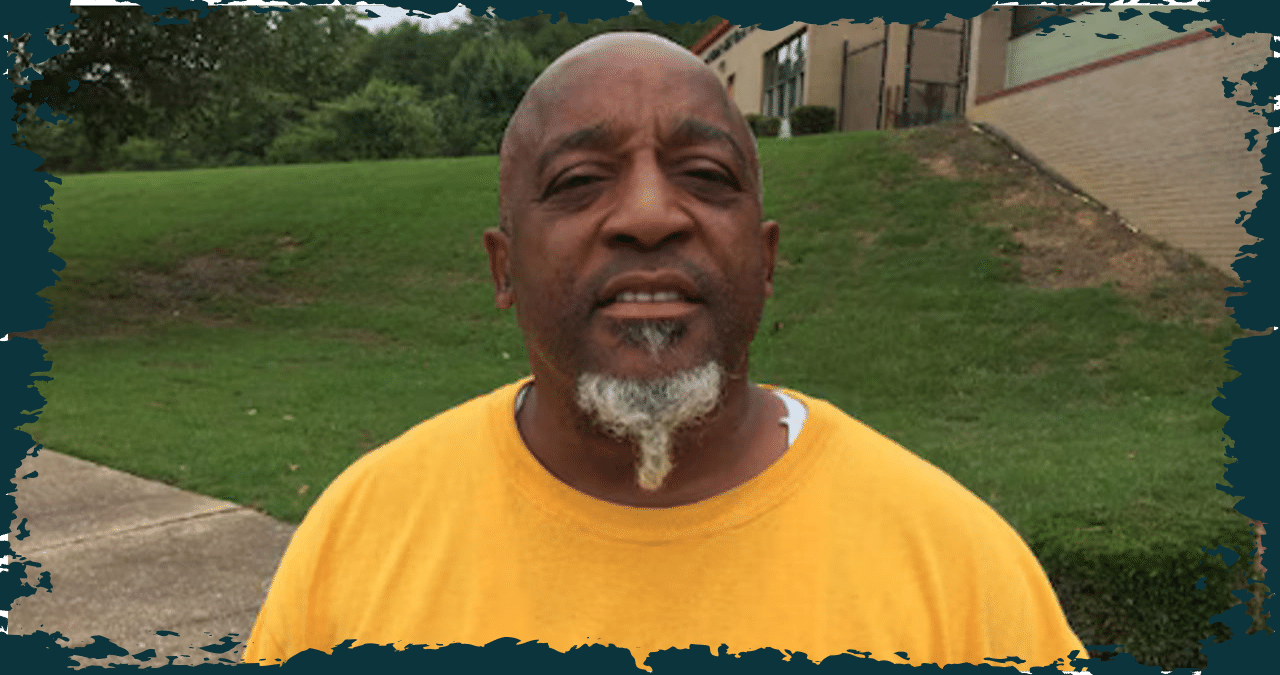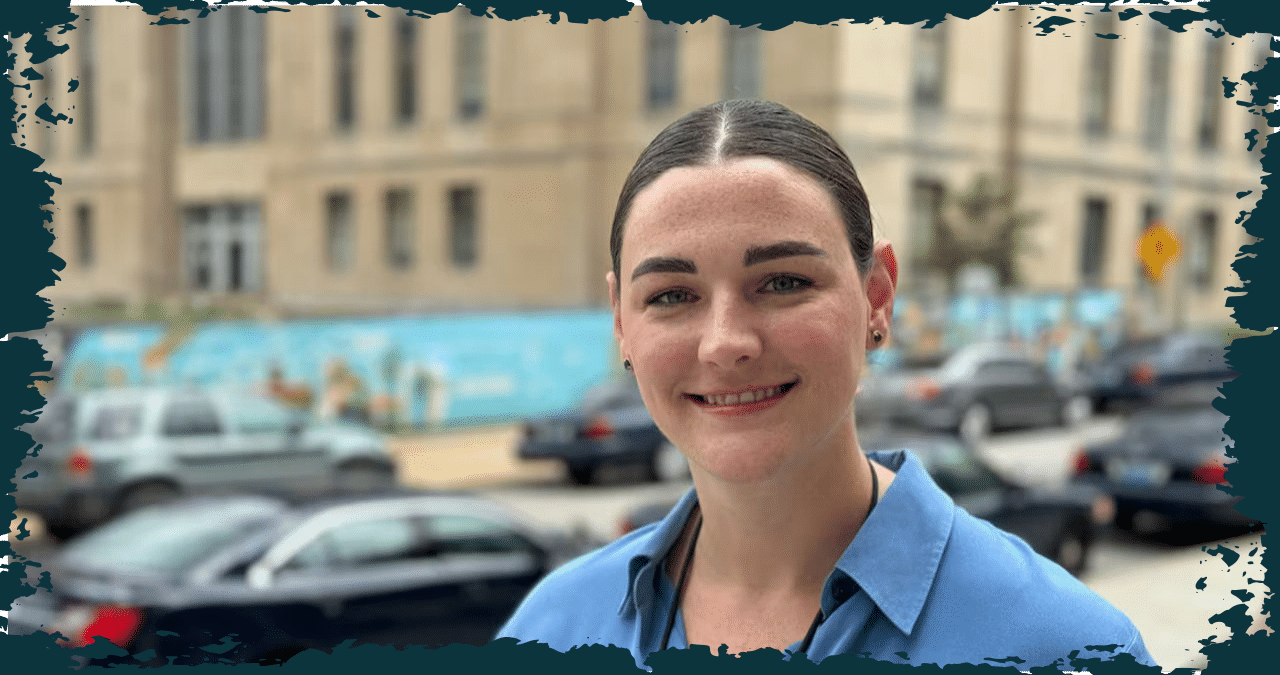For three decades, Kenneth Sharpton-Glasgow, an Alabama activist, dedicated his life to advocating for the voting rights of individuals with felony records.
Before his 11-month stint in federal prison on charges of tax evasion and drug distribution, he had a different perspective. However, his time in prison changed his outlook, especially after being incarcerated with individuals who participated in the U.S. Capitol riots on January 6th, 2021.
In a recent phone interview from his car after being released from prison, Sharpton-Glasgow expressed his disbelief at the fact that a presidential candidate, Trump, has 34 felonies. He couldn’t help but wonder if this was a sign of divine intervention in his own situation.
Upon his release from prison, Sharpton-Glasgow expressed to AL.com his optimism for the upcoming election year. He believes that there is a new opportunity to address the issue of felon disenfranchisement in a bipartisan manner. Notably, both former President Trump, a Republican, and Hunter Biden, son of Democratic President Joe Biden, have felony convictions, which adds a unique perspective to the issue.
At 59 years old, Sharpton-Glasgow has primarily gone by his last name Glasgow throughout his life. Despite being the half-brother of well-known activist Rev. Al Sharpton, he has resided in Dothan for most of his life, having been brought there as a child by his mother, Tina Glasgow.
In 1964, Al Sharpton was born to parents Al Sharpton, Sr. and Ada Sharpton. Tina Glasgow, Ada’s teenage daughter from a previous marriage, came to live with the family. She later became pregnant with Al Sharpton, Sr.’s son, Kenneth Glasgow.
Sharpton-Glasgow has a complex relationship with his name due to his family history. Despite being named Kenneth Sharpton at birth, he preferred to go by Glasgow. This decision was influenced by the stabbing of his brother during a protest in New York City, which led him to use his mother’s surname as a protective measure against potential retaliation.
According to ProPublica, Sharpton-Glasgow developed the concept for TOPS – The Ordinary People Society while serving a 14-year sentence in Florida for drug offenses. During his time in prison, he studied religion and converted to Christianity. Upon his release in 2001, he returned to Dothan as a community activist and preacher, dedicated to supporting individuals who have been incarcerated or involved in the drug trade.
Al Sharpton and Rev. William Barber II teamed up on various campaigns aimed at restoring voting rights to felons in Alabama. One of their most significant achievements was the passing of a bill in 2017, which enabled many people convicted of drug crimes to regain their right to vote. Sharpton-Glasgow also worked on similar efforts in Florida, where they focused on getting former offenders registered to vote.
Glasgow was arrested and charged with capital murder, despite not being the one who fired the shots. He maintained that he had no prior knowledge of his passenger’s intention to shoot someone. However, after nearly three years, the charges against him were eventually dropped.
Sharpton-Glasgow admitted to tax evasion and drug charges in 2023. According to federal prosecutors, he misused over $1 million donated to his nonprofit organization for personal expenses, neglected to file a tax return, and attempted to claim disability benefits despite being physically capable of working.
Upon his arrival at federal prison in August 2023, he noticed a significant difference in comparison to his time in a state prison in Florida. The environment was less violent, and the availability of resources was substantially better. During his time there, he collaborated with fellow inmates to devise a strategy to register eligible inmates to vote.
According to Sharpton-Glasgow, individuals who are incarcerated in federal prisons and have committed non-moral turpitude crimes are eligible to vote.
Sharpton-Glasgow remains committed to addressing the same issues he worked on before his time in prison, but he also desires a new beginning following his release. Changing his name is one step towards achieving that.
Al Sharpton, Sr., who is 97 years old, sent a letter to his son while he was in prison. In the letter, he requested that his son change his name back to Sharpton as his final wish.
Al Sharpton, Sr. expressed his long-standing sadness over the fact that the Sharpton family has not been acknowledged for their impressive achievements. In a letter he shared with AL.com, he wrote, “One thing that has always grieved me all these years is that no one could recognize your great accomplishments as belonging to the Sharpton family.”
Sharpton-Glasgow found the letter to be a significant sign after the tumultuous seven years he had experienced. However, he was also inclined to retain his mother’s name, considering the hardships she faced while holding onto him and bringing him up.
Sharpton-Glasgow pointed out that throughout Biblical history, individuals who were touched, redeemed, or resurrected by God were often given a new name or had their existing name modified or expanded upon. This is precisely what is happening to Sharpton-Glasgow.
Until he is allowed to return to Dothan, Sharpton-Glasgow will remain at the halfway house. He intends to concentrate on preaching and will delegate the administration of The Ordinary People Society to others. His efforts will remain centered on serving those who are often overlooked by society.
Sharpton-Glasgow pointed out that some of the most significant figures in Christianity, such as Paul and Peter, wrote important texts while they were in prison. She emphasized that incarcerated individuals are still people and should not be dehumanized or ignored.







